Play, Be, C: Pharmacist
Resources and activities themed around a STEM job, to build language and understanding around the world of work.
Resources and activities themed around a STEM job, to build language and understanding around the world of work.

Pharmacists dispense medicines. This means they prepare and give medicines to people who have a prescription (or their adult if they are a child). Pharmacists can work in a pharmacy, hospital or GP practice. They can also give advice about prescriptions, how to use and store medicines, and the dangers of medicines. Some pharmacists also make and test new medicines.
Pharmacists are:
Creative when they make new medicines and when they prepare and make special medicines for patients.
Curious about what is wrong with their patients when they are unwell and about which medicines will be best to make them better.
Observant they need to read prescriptions carefully and make sure they give the correct amount of each medicine to their patients.
Includes statements from Development Matters (birth to age five) and the relevant ELGs.
Play, Be, C Units provide enabling environments with teaching and support from adults. Reflecting on the characteristics of effective teaching and learning, children will have opportunity to learn and develop by:
- Playing and exploring – children investigate and experience things, and ‘have a go’.
- Active learning – children concentrate and keep on trying if they encounter difficulties and enjoy achievements.
- Creating and thinking critically – children have and develop their own ideas, make links between ideas, and develop strategies for doing things.
Early Years Foundation Stage Statutory Framework: accessed November 2024. Available under the Open Government Licence v3.0.
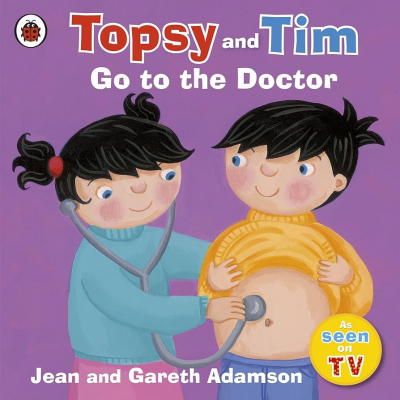
Our suggested book for this Unit is Topsy and Tim Go to the Doctor by Jean and Gareth Adamson, illustrated by Belinda Worsley.
You can find out more about the book at the publisher’s page, and the Google Books page will link you to retailers and local libraries.
We have designed these STEM-focused questions to use alongside the questioning you would usually use when reading a story.
These adult led activities and provocations will support the introduction of the pharmacist career to the children in your setting.
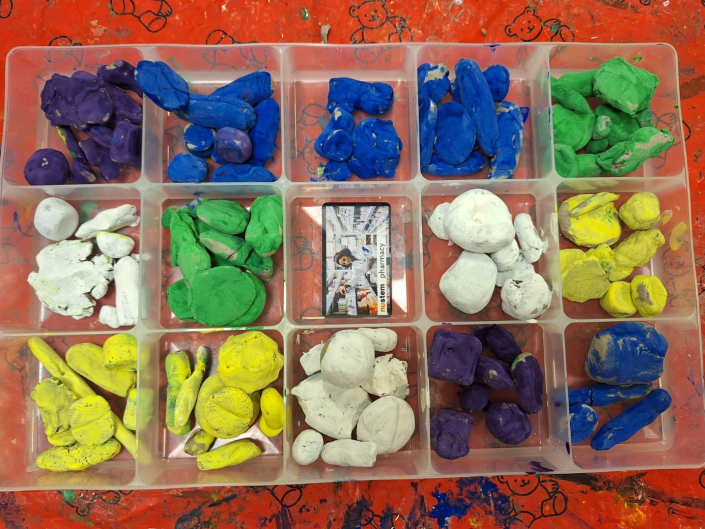
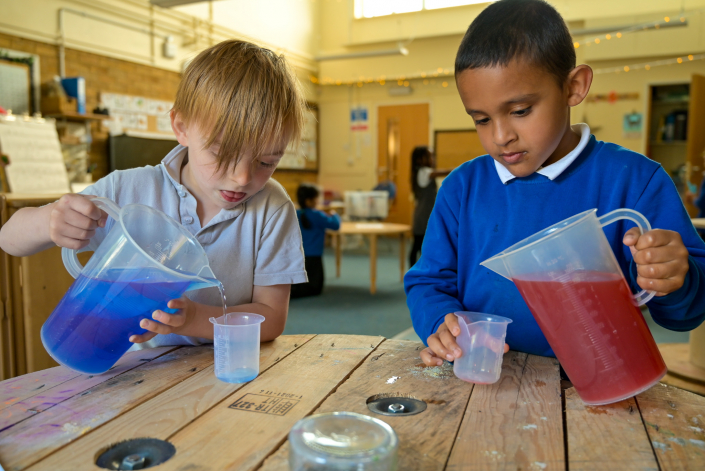
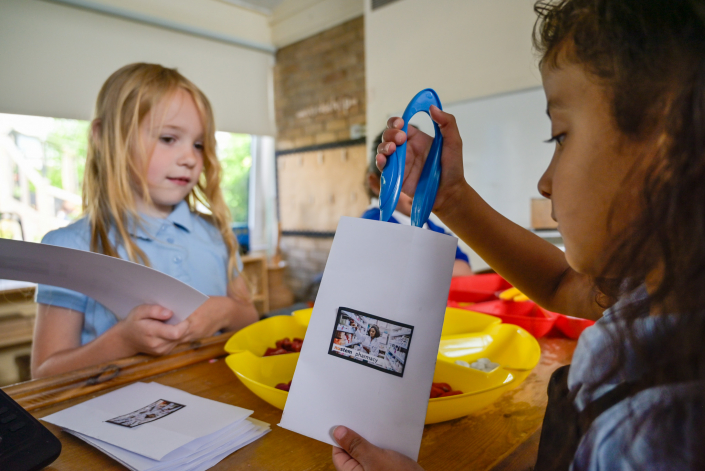
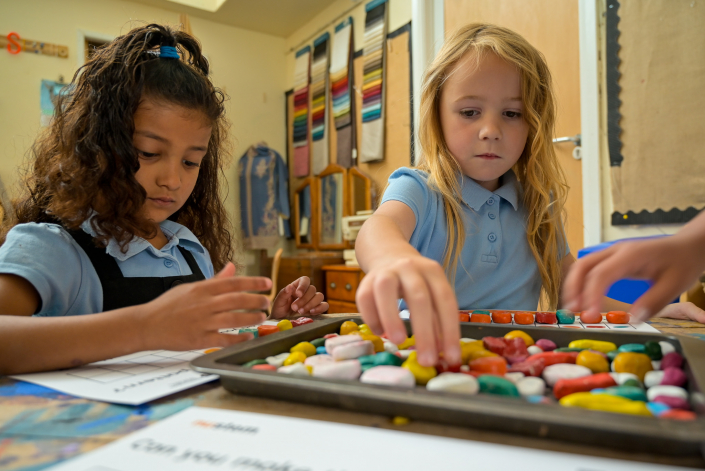
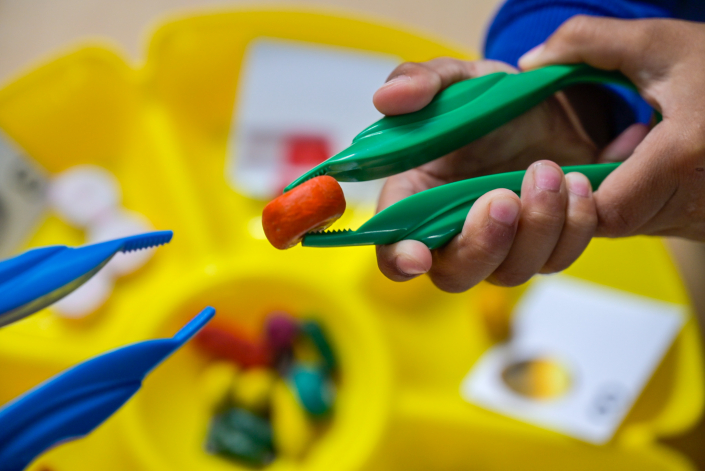
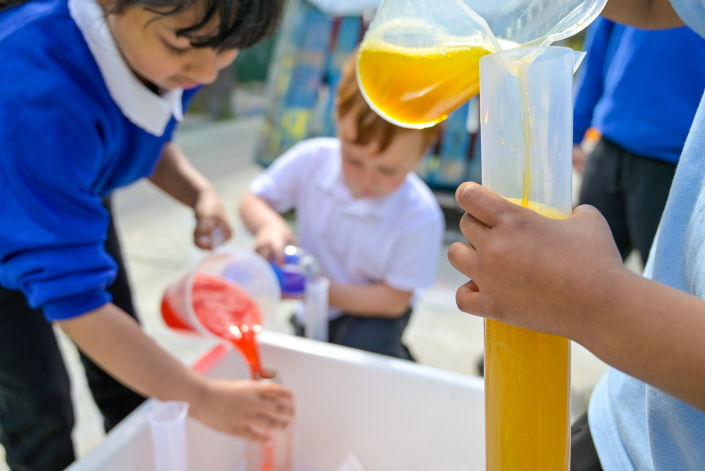
This is a link to a related STEM at home activity. This could be sent out for families to try at home, or run in school at a family session.
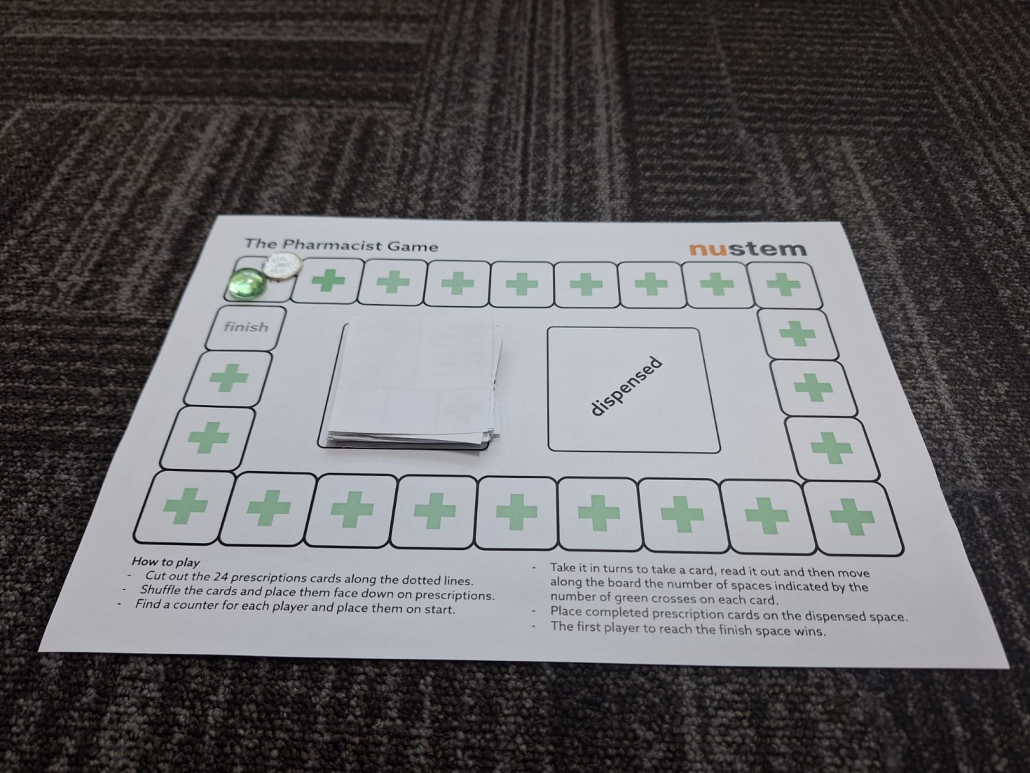
This is a link to the instructions for a related family STEM story time activity. This is an opportunity to introduce STEM ideas and activities to parents, carers and other family members in a relaxed and enjoyable way.

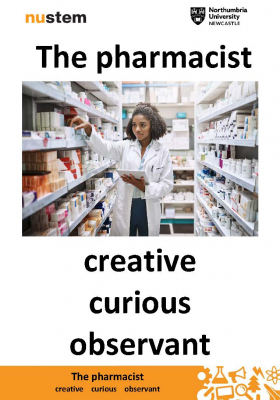 Pharmacists are scientists and clinicians who use their scientific knowledge to advise patients and make sure they receive the best possible care. Pharmacists work in many different settings, developing new medicines, supplying medicines, providing advice about medicines, and offering health services. They may work in an NHS or private hospital, at a GP practice, a university, a shop or a research facility.
Pharmacists are scientists and clinicians who use their scientific knowledge to advise patients and make sure they receive the best possible care. Pharmacists work in many different settings, developing new medicines, supplying medicines, providing advice about medicines, and offering health services. They may work in an NHS or private hospital, at a GP practice, a university, a shop or a research facility.
Pharmacists are creative when they develop new medicines. Some pharmacists use compounding to create medicines. Compounding is the process of combining, mixing, or altering two or more active pharmaceutical ingredients to create compounded medication that is tailored for a particular person. Compounding might be used to prepare medicines for patients with allergies to common ingredients, or to prepare medicines that are in liquid form or with flavourings to improve the taste for children or patients with swallowing difficulties .
Pharmacists are curious about their patient’s symptoms so they can recommend the best medicine for particular conditions and diseases. They need to have sensitivity and understanding and excellent customer service skills. Some pharmacists are curious about research and development of new medicines and may run clinical trials. Some pharmacists will work on the regulation of medication. They may work in the pharmaceutical industry or at universities rather than directly with patients.
Pharmacists need to be observant when reading prescriptions, preparing medicines and giving advice about medication to patients in order to keep them safe. They need to be thorough, accurate and pay attention to detail. Pharmacists need to give their patients complicated technical medical information about their medication and ensure they take the correct doses.
You can download our pharmacist poster to use in your setting.
We may request cookies to be set on your device. We use cookies to let us know when you visit our websites, how you interact with us, to enrich your user experience, and to customize your relationship with our website.
Click on the different category headings to find out more. You can also change some of your preferences. Note that blocking some types of cookies may impact your experience on our websites and the services we are able to offer.
These cookies are strictly necessary to provide you with services available through our website and to use some of its features.
Because these cookies are strictly necessary to deliver the website, refusing them will have impact how our site functions. You always can block or delete cookies by changing your browser settings and force blocking all cookies on this website. But this will always prompt you to accept/refuse cookies when revisiting our site.
We fully respect if you want to refuse cookies but to avoid asking you again and again kindly allow us to store a cookie for that. You are free to opt out any time or opt in for other cookies to get a better experience. If you refuse cookies we will remove all set cookies in our domain.
We provide you with a list of stored cookies on your computer in our domain so you can check what we stored. Due to security reasons we are not able to show or modify cookies from other domains. You can check these in your browser security settings.
These cookies collect information that is used either in aggregate form to help us understand how our website is being used or how effective our marketing campaigns are, or to help us customize our website and application for you in order to enhance your experience.
If you do not want that we track your visit to our site you can disable tracking in your browser here:
We also use different external services like Google Webfonts, Google Maps, and external Video providers. Since these providers may collect personal data like your IP address we allow you to block them here. Please be aware that this might heavily reduce the functionality and appearance of our site. Changes will take effect once you reload the page.
Google Webfont Settings:
Google Map Settings:
Google reCaptcha Settings:
Vimeo and Youtube video embeds:
The following cookies are also needed - You can choose if you want to allow them:
You can read about our cookies and privacy settings in detail on our Privacy Policy Page.
Privacy Notice and Cookies 2025